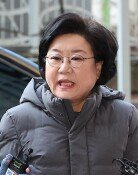Koreans Who Earned Doctorate Degrees in the U.S. Do Not Want to Return
Koreans Who Earned Doctorate Degrees in the U.S. Do Not Want to Return
Posted December. 19, 2006 03:01,
More and more Korean scientists and engineers, who graduated from Korean universities and continued on to earn their doctorate degrees in the U.S., are working in the U.S. This can be interpreted as a worsening brain drain in the Korean science and technology sector.
The Korea Research Institute for Vocational Education and Training (KRIVET) released an analysis yesterday on the U.S. National Science Foundation (NSF)s data on those who have received their doctorate degrees.
According to the analysis, 73.9 percent out of the 901 Koreans who earned a doctorate degree in engineering, natural science, and bioengineering in 2004 in the U.S. wanted to remain. The figure is a 23.9 percent point increase from 50 percent in 1984.
The ratio of Korean doctors who plan to stay in the U.S. declined to 75.4 percent in 2003 and 73.9 percent in 2004 after reaching its peak of 82.2 percent in 2002, but the figures are all very high.
KRIVETs estimate based on analysis of data from the NSF and Korea Research Foundation shows that 48.7 percent of Koreans who earned a doctorate degree in science and engineering in 2002 in the U.S. returned to Korea, a more than 20 percent point decrease from 69.5 percent in 1995.
The analysis said that among Korean science and engineering doctors who return to Korea from the U.S., 36.8 percent are working for private companies, while 36.1 percent and 27.1 percent are with universities and state-sponsored research institutes, respectively. By comparison, 52.2 percent of those who remained in the U.S. are working for universities, while 38 percent and 9.8 percent are with private companies and state-sponsored research institutes.
Meanwhile, the KRIVET conducted a survey of 454 Koreans who received their doctorate degrees in the U.S. after 2001 (255 among them opted to stay in the U.S. and the rest returned to Korea) from June to September. The survey results show that respondents chose to remain in the U.S. for good working conditions (51.4 percent), education for their children (16.2 percent), and enhancement of their expertise (10.8 percent).
Those who returned to Korea are considering heading back to the U.S. for the same reason, the survey said. With most of them showing low level of job satisfaction, 37.7 percent among them said that they would go back to the U.S. if presented with an opportunity. About 61.7 percent of those who are working for a private company said that they are underemployed.
Jin Mi-seok, a senior researcher of KRIVET, said, To stop brain drain in the science and technology sector, we should urgently come up with effective measures, such as improvement of working and research conditions in domestic companies.
foryou@donga.com




![반찬통 착색 고민 끝…‘두부용기’ 버리지 말고 이렇게 쓰세요 [알쓸톡]](https://dimg.donga.com/c/138/175/90/1/wps/NEWS/IMAGE/2026/01/09/133126593.3.png)


